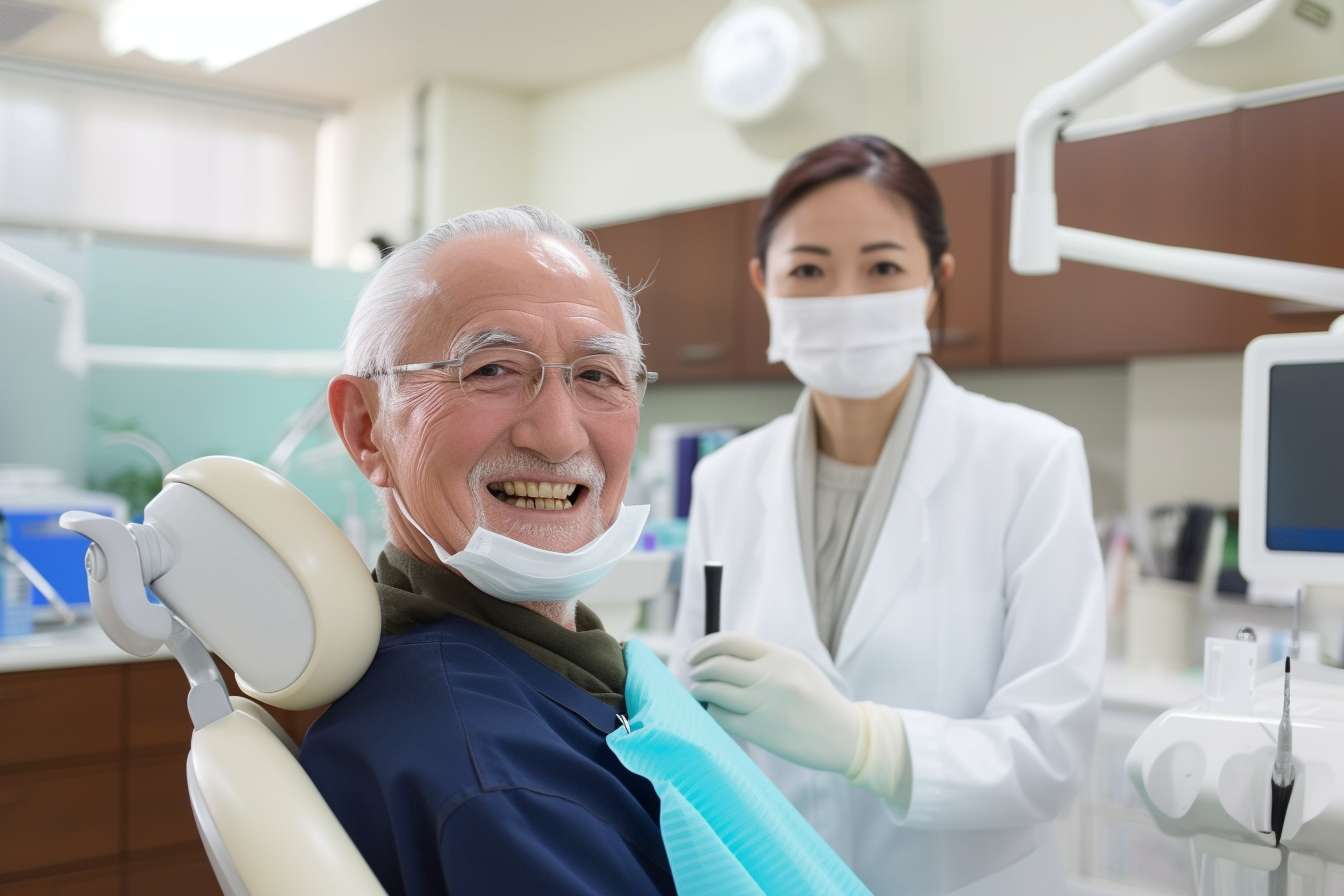Choosing a Senior-Friendly Dentist in 2025: What to Look For
Dental care becomes even more important as we age—but not every dentist is equipped to meet the unique needs of older adults. From managing dentures and dry mouth to treating gum disease or age-related tooth sensitivity, senior-friendly dentists specialize in providing gentle, personalized care. In 2025, the best dentists for seniors offer accessible offices, advanced technology, and compassionate communication tailored to aging patients. This guide will help you know what to look for when choosing a senior dentist, so you or your loved ones can maintain a healthy, confident smile well into the golden years.

What Makes a Dentist Truly Senior-Friendly?
A truly senior-friendly dentist possesses a combination of specialized knowledge, experience, and a compassionate approach to treating older patients. These professionals understand the complex interplay between oral health and overall well-being in seniors. They are familiar with age-related dental issues such as dry mouth, gum recession, and increased susceptibility to oral diseases. Moreover, senior-friendly dentists are adept at managing patients with multiple medications, chronic health conditions, and mobility challenges. They prioritize clear communication, often speaking slowly and loudly if necessary, and take the time to explain procedures thoroughly to both patients and their caregivers.
Which Special Services Should Senior Dental Practices Offer?
Senior-friendly dental practices should offer a range of specialized services tailored to the needs of older adults. These may include:
-
Comprehensive oral health assessments that consider the impact of systemic diseases on dental health
-
Preventive care programs designed specifically for seniors
-
Denture services, including fitting, repair, and maintenance
-
Treatment of dry mouth and related conditions
-
Management of oral pain and discomfort associated with aging
-
Oral cancer screenings
-
Nutritional counseling related to oral health
-
Coordination with other healthcare providers to ensure holistic care
Additionally, some practices may offer mobile dentistry services for homebound seniors or those in assisted living facilities, ensuring that oral health care remains accessible to all.
How Important is Office Accessibility and Comfort?
Office accessibility and comfort are paramount when choosing a senior-friendly dentist. The physical layout of the dental office should accommodate patients with mobility issues, including those who use wheelchairs or walkers. Look for practices with:
-
Wide doorways and hallways
-
Ramps or elevator access
-
Comfortable seating in waiting areas with armrests for easy rising
-
Examination rooms that can accommodate wheelchairs
-
Well-lit spaces to prevent falls and assist those with vision impairments
Comfort extends beyond physical accommodations. A truly senior-friendly practice creates a welcoming atmosphere with staff trained to assist older patients patiently and respectfully. Some offices may offer amenities like blankets, pillows, or noise-canceling headphones to enhance comfort during procedures.
What Should You Ask During the Initial Consultation?
The initial consultation is an opportunity to assess whether a dentist is the right fit for a senior patient. Key questions to ask include:
-
How much experience do you have treating older patients?
-
Are you familiar with common health conditions affecting seniors and their impact on oral health?
-
How do you accommodate patients with mobility issues or cognitive impairments?
-
What is your approach to pain management for older adults?
-
Can you work with my other healthcare providers to coordinate care?
-
How do you handle dental emergencies for senior patients?
-
What payment options or financial assistance programs do you offer for seniors?
It’s also important to observe how the dentist and staff interact with you or your loved one during this consultation. Their patience, clarity in communication, and willingness to address concerns are good indicators of their suitability for senior care.
What Are the Latest Technologies Benefiting Senior Dental Care?
Advancements in dental technology have significantly improved the quality of care available to seniors. Some cutting-edge technologies to look for in a senior-friendly dental practice include:
-
Digital X-rays: These emit less radiation and provide instant, high-quality images.
-
Intraoral cameras: Allow for detailed examination of the mouth with minimal discomfort.
-
CAD/CAM technology: Enables same-day creation of crowns and other dental prosthetics.
-
Laser dentistry: Offers less invasive treatment options for various dental procedures.
-
3D printing: Used for creating precise dental implants and prosthetics.
-
Teledentistry services: Provide remote consultations and follow-ups, reducing the need for in-person visits.
These technologies can make dental procedures quicker, more comfortable, and less invasive for senior patients.
| Technology | Benefits for Seniors | Estimated Cost Range |
|---|---|---|
| Digital X-rays | Lower radiation, instant results | $100 - $250 per series |
| Intraoral Cameras | Improved diagnosis, patient education | $25 - $100 per exam |
| CAD/CAM (same-day crowns) | Fewer appointments, custom fit | $800 - $3,000 per crown |
| Laser Dentistry | Less invasive, faster healing | $200 - $1,000 per procedure |
| 3D Printed Dentures | Better fit, faster production | $1,000 - $3,000 per set |
Prices, rates, or cost estimates mentioned in this article are based on the latest available information but may change over time. Independent research is advised before making financial decisions.
Choosing a senior-friendly dentist in 2025 requires careful consideration of various factors, from specialized services and office accessibility to the incorporation of advanced technologies. By prioritizing these aspects, seniors can ensure they receive comprehensive, comfortable, and high-quality dental care tailored to their unique needs. Remember to schedule regular check-ups and maintain open communication with your chosen dental professional to support optimal oral health throughout the golden years.
This article is for informational purposes only and should not be considered medical advice. Please consult a qualified healthcare professional for personalized guidance and treatment.




